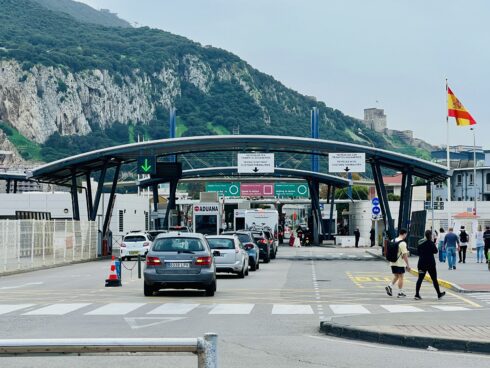A TOP German detective has told a court why he believes Madeleine McCann suspect Christian Brueckner is a dangerous serial rapist.
The respected profiler told Braunschweig court this week how he is certain two ‘sadistic’ attacks in Portugal in 2004 and 2005 are linked.
Harald Dern, 62, explained the many similarities between the rape of Irish girl, Hazel Behan, in 2004, with American pensioner, Diana Menkes, for which Brueckner is currently serving seven years in prison.
Aside from both attacks being undertaken just 10 miles apart on the Algarve by a German-speaking man, the modus operandi was almost identical, reported Braunschweiger Zeitung newspaper.
In particular, each rape involved the assailant breaking in and tying up, terrifying and humiliating the victims.
“Criminally, they were both undertaken by very unusually competent perpetrators who proceeded very purposefully, with a high level of organisation,” he told the panel of judges during month seven of the trial, in which Brueckner is facing five separate sex offences.
The behavioural analyst added the assailants had brought rape kits to the scenes and that both women were shocked by their arrival.
Each of them was tied up and attacked by weapons, before being raped several times.

The BKA Federal Criminal police crime case boss added that he was very sure that the attacker of Hazel also attacked Diana, then 72.
He based this on the ‘same sadistic script’ undertaken in Portimao, where Hazel was attacked, with nearby Praia da Luz, where Diana was raped and British toddler Madeleine later vanished in 2007.
This routine involved whipping and torturing the helpless women, leaving them in fear of what could happen next.
Dern – who has analysed ‘several thousands’ of rapes during a long career – added he put them ‘in fear of death without killing or seriously injuring them’.
He said these types of attack were ‘very rare’ and particularly picked up on the ‘destructive ritual’ as being a ‘core, central element’ in both cases.
It is Dern’s analysis of the crime career of Brueckner that has led, in part, to the indictments against the criminal in the five cases, which includes three rapes and two sex attacks on children.
Under cross-examination he admitted there were various differences between the attacks.
The judges, in particular, picked up on the big age difference between the two victims, Hazel, who was then 20, and Menkes, who was 72.
This was despite the trial previously hearing from two former pals of Brueckner, Helge Busching and Manfred Seyferth, who testified they had watched the accused in rape videos attacking a different pensioner.
The judges also asked why the attackers had different tools to whip the victim and why Diana was blindfolded and Hazel was not.
They also questioned why Hazel’s attack had been filmed, while Diana was not able to confirm if a camera had been used or not (presumably as she was blindfolded).
Dern, who has worked at the BKA since 1993, described these as ‘situational factors’, which always lead to differences in attacks and could be influenced by the assailant’s mood on that day.
Brueckner’s defence also criticised some of Dern’s team, based out of the BKA headquarters in Wiesbaden, as showing bias towards their client.
They also claimed that profilers had worked directly in the case when they were only meant to be advising detectives.
It comes after the prosecutors filed to have judges removed from the case for also allegedly showing bias, as well as requesting a retrial. Both requests have been rejected.
Another key frustration for prosecutors – who are expected to announce a trial date against Brueckner in the Madeleine case this Autumn – is the level of detail the Portuguese police investigating the crimes took.
In particular, unlike many European countries, Portugal is not a member of ViCLAS, a continent-wide database that analyses and compares serious crimes.
The Violent Crime Linkage Analysis System, set up in the 1990s in Canada, helps investigators identify serial crimes and criminals.
It focuses on the linkages that exist among crimes committed by the same offender.
While many countries, including France, Germany and the UK are members, neither Spain or Portugal have joined.
It means that none of the sex crimes committed in Portugal can be compared with others around Europe.
The trial will continue on August 15.
Click here to read more Spain News from The Olive Press.








